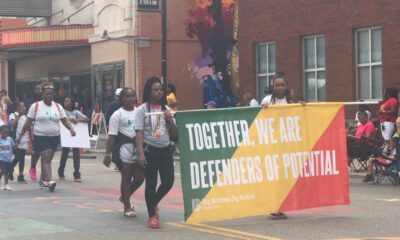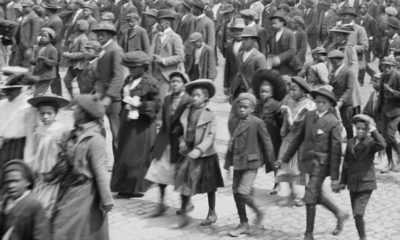Featured
Juneteenth And ‘246 Years Of Free Labor’ Are Key To Conversations About Reparations

The Juneteenth weekend festivities in Memphis wrapped up today but began Thursday with a luncheon sponsored by the Tennessee Black Caucus which featured one of the nation’s most refreshing social justice voices and the perspective of a pioneer in the movement for reparations for African Americans.
Dr. Ray Winbush, director of the Institute for Urban Research at Morgan State University and author of several books on compensation for descendants of the enslaved Africans who worked America’s plantations for generations without payment – delivered the keynote address at the .
Winbush said, “While the United States recognizes Juneteenth as a national holiday, states are simultaneously putting laws into place to make it far more difficult for me to vote in 2024. And while the U.S. government recognizes Juneteenth as a national holiday, two state representatives here in Tennessee were expelled for speaking truth to power.”
Justin Pearson, the young Tennessee legislator who became a household name earlier this year after he and a colleague took a stand for gun control and were removed from their seats temporarily, reminded the audience of the genesis of African Americans.
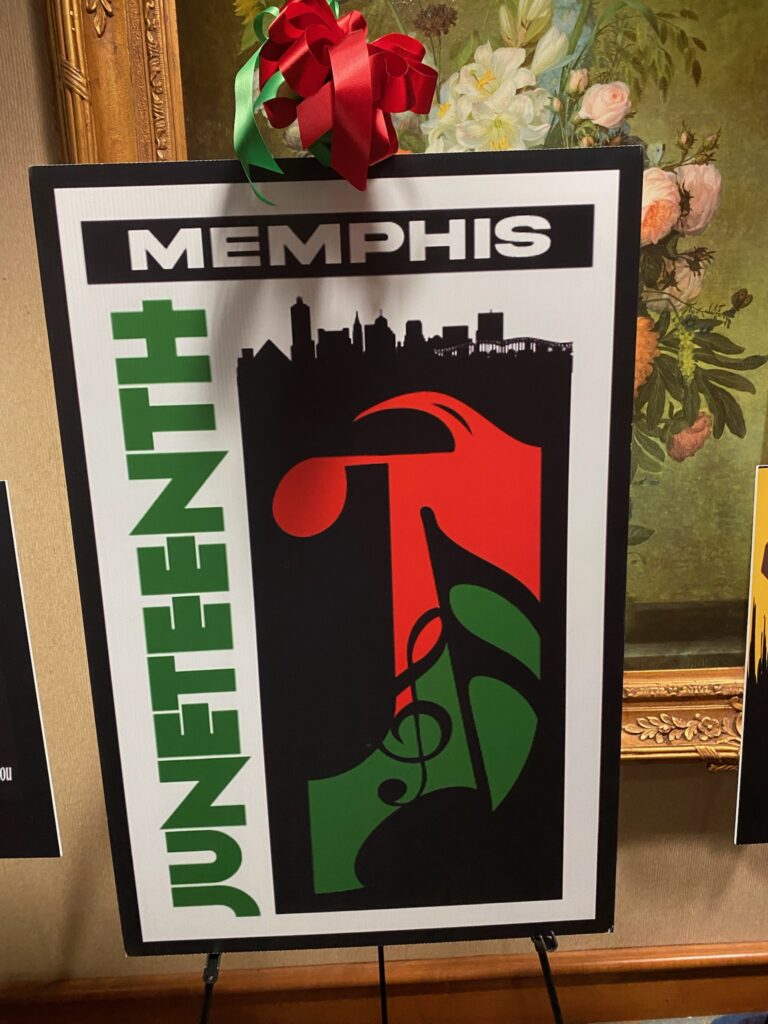
“God, we thank you that you put breathe into Adam and Eve on the shores of Africa and breathed that life into we, your Black people,” he prayed.
Hours later, Pearson cleared another political hurdle. Voters chose him over his Democratic challenger in the special primary race for reelection to his District 86 Tennessee House seat. The general election will be held Aug. 8.
He said, “The ancestors are with us. They never left us.”
The reason for reparations
Special Field Order 15 which set aside land along the Southeast coast for the newly freed is widely known as ’40 Acres And A Mule.” But Winbush pointed out the U.S. government did not fulfill its promise.
“They [newly freed men and women] were sent away empty-handed without money, without friends, without a foot of land on which to stand,” he said.
“All that we have worked for in this nation since 1619 has been to repair the damage done by those who stole us from Africa. We may call it civil rights, we may call it affirmative action, we may call it equity in educational funding or DEI, but what it all boils down to is struggling for reparations for African people because of the Transatlantic Slave Trade.”
The United States government has paid reparations to some Native American tribes, Japanese families who were interned during World War II, families who lost loved ones during the Sept. 11 attacks, and to Americans held hostage in Iran. Reparations were also paid to slave owners for the emancipation of their slaves during the Civil War.
Yet the conversation about reparations for the descendants of the enslaved is often met with fierce resistance.
“A colleague of mine at George Washington University in Washington estimates that this nation literally owes its Black citizens anywhere from $8 to $10 trillion dollars,” Winbush explained. “Congresswoman Cori Bush, who I was with two weeks ago, said, ‘We should begin the count at $14 trillion.’ That figure includes 246 years of unpaid labor during slavery, the 40 Acres and the Mule.”
Evanston, Illinois, is the first U.S. city to issue slavery reparations which included housing grants for some of the city’s families. According to the city, this is the first initiative in a historic plan to distribute $10 million in reparations to Black residents.
In San Francisco, city leaders have suggested paying reparations to Black residents, but there are concerns about the proposed $5 million lump-sum payment to every eligible person and the more than 100 other recommendations the advisory committee is reviewing. A course of action will be announced later this year.
As the conversation about reparations spreads in earnest, Winbush and others see the number of Black Americans increasing who support the logic for compensation denied their ancestors.

-

 Black History5 months ago
Black History5 months agoThe untold story of a Black woman who founded an Alabama hospital during Jim Crow
-
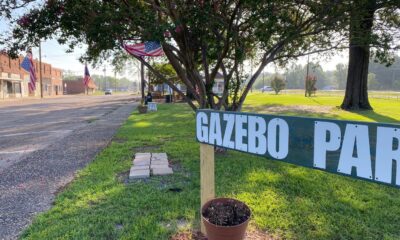
 Featured9 months ago
Featured9 months ago‘No Closure’ In Town Where Five Black Residents Were Either Murdered, Died Suspiciously Or Are Missing
-
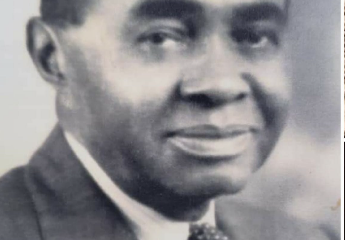
 Black History9 months ago
Black History9 months agoBlack History Lost and Found: New Research Pieces Together the Life of Prominent Texas Surgeon and Activist
-

 Featured9 months ago
Featured9 months agoFounder of “The Folding Chair” Podcast Calls Montgomery’s Brawl ‘Karma’
-

 Featured8 months ago
Featured8 months agoThousands ‘Live Their Dream’ During National Black Business Month
-
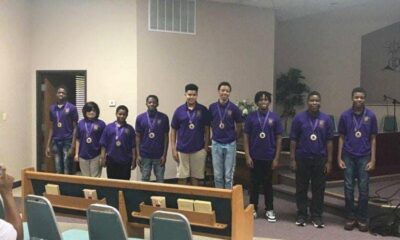
 Featured9 months ago
Featured9 months agoMemphis Youth Organization Uses Discipline To Encourage Potential




